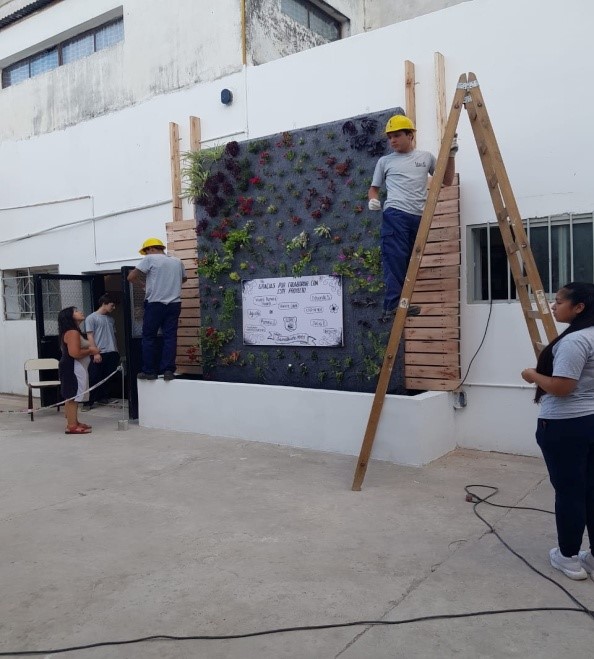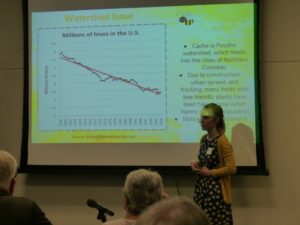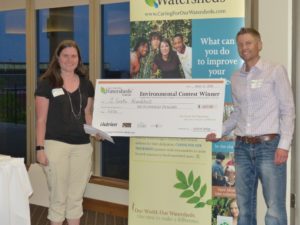2019, Saskatoon, Saskatchewan, Canada
Renee and Odessa of St. George School in Saskatoon created a children’s book that shows a rubber duck named Robbie accidentally getting lost down the bathtub drain. Robbie then experiences going through the water treatment plant. Along his journey he makes a connection with a girl rubber duck named Penny. His owner, Jack, and little sister, Emily, are searching and doing anything they can to find him, and in the end they rescue both Robbie and Penny from the River.
They want to print off 15 books for their school library and classrooms grades 1-3. The girls also want to put one book in each Catholic school in Saskatoon and surrounding areas of Warman, Martensville, and Humboldt. Eventually they would like to put a book in every Public school in Saskatoon as well.
Renee and Odessa are excited to share their knowledge gained through the Caring For Our Watersheds program, especially to the younger classes, as they were not educated on where the water goes after entering the storm drain system when they were younger. They are proud to spread awareness of the water treatment and sanitary sewer drain systems and how they affect the health of our watershed. The girls are already thinking of writing a sequel focusing on storm drains.
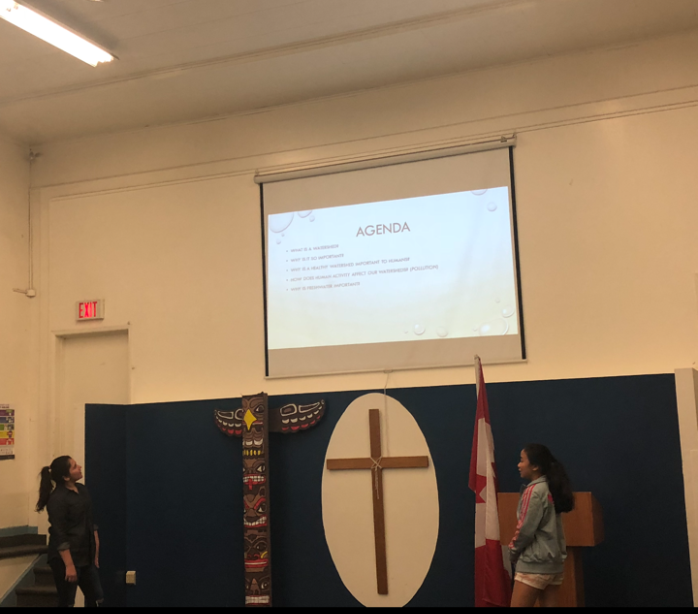 2019, Winnipeg, Manitoba, Canada
2019, Winnipeg, Manitoba, Canada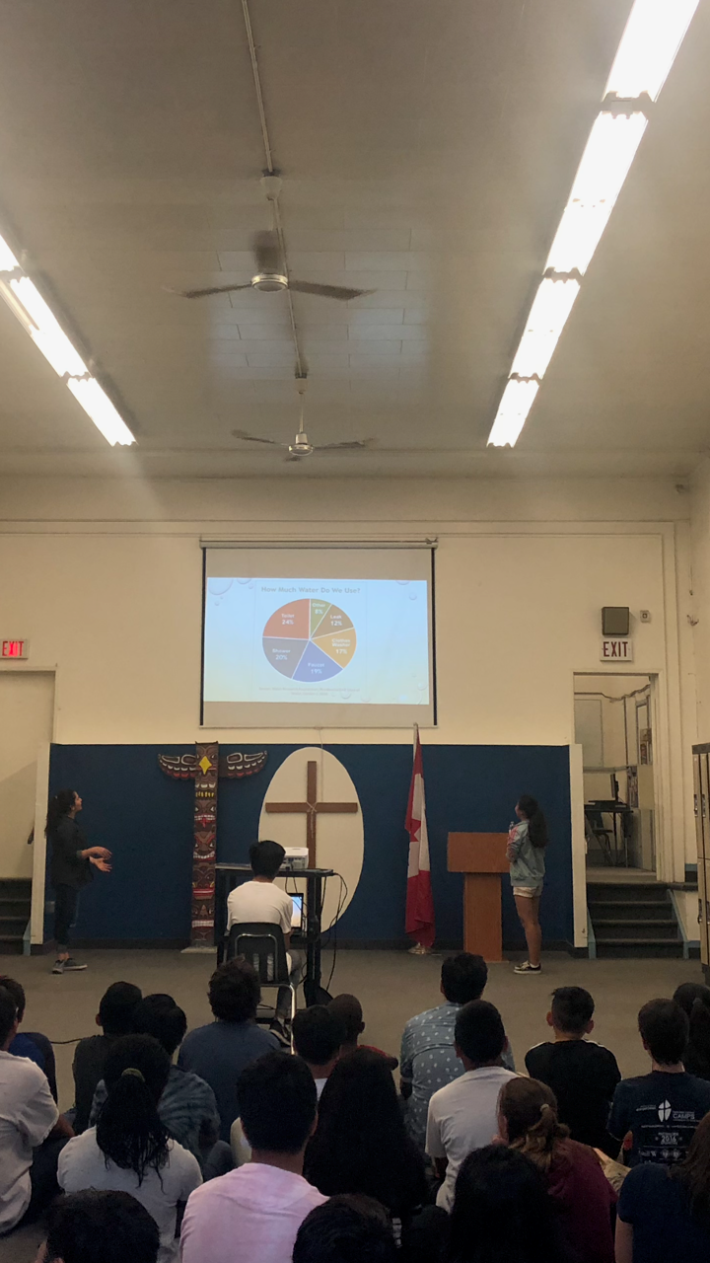
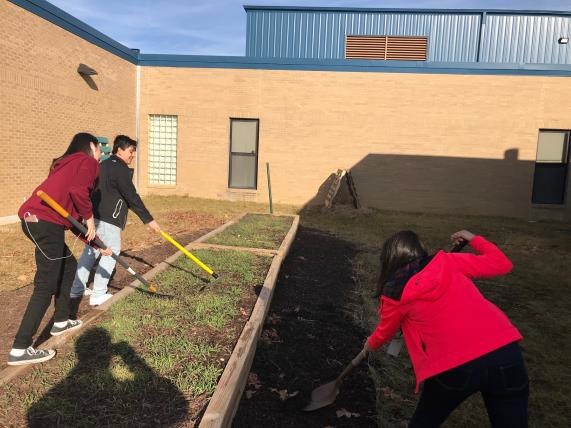 2019, Woodbridge, Virginia, USA
2019, Woodbridge, Virginia, USA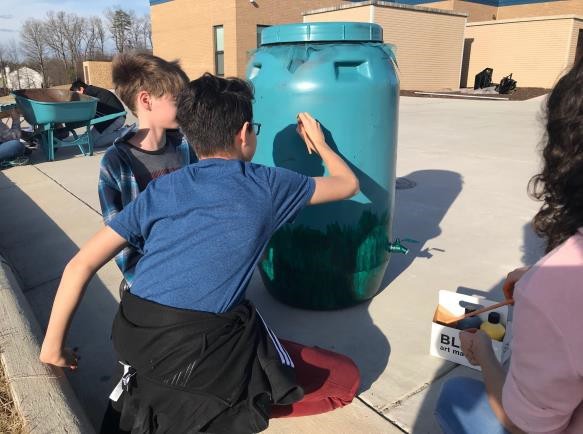
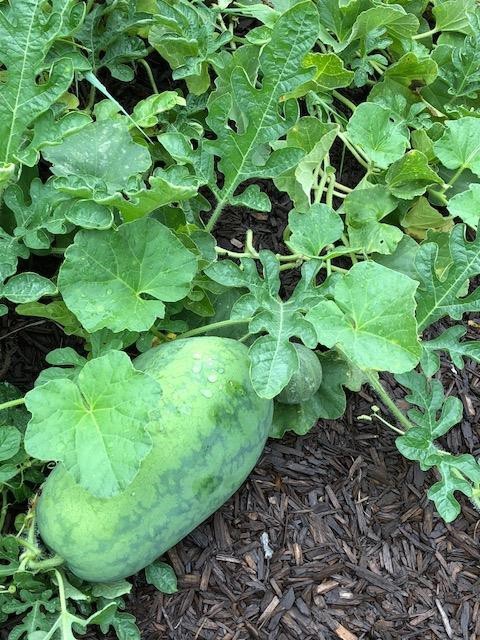 Many of our students are disconnected from nature. In a recent school survey, over 80% of students reported spending less than 15 minutes a day outside. This removal from the outside world impacts how the kids view the Earth and challenges that society faces with environmental issues. The students in the Ecology Club are using this courtyard garden to teach the other students at school about pollution, it’s impact on our water and soil, the importance of pollination and pollinators, biodiversity and where food comes from. It is not a complicated project, but it is profoundly changing how some students will approach their natural world. Their hope is for a cascade effect. They want to clean our local grounds and use that trash to beautify the garden by planting herbs and flowers in it. That it will increase the number of insects and birds in the garden and inspire the humans at school to do the same.
Many of our students are disconnected from nature. In a recent school survey, over 80% of students reported spending less than 15 minutes a day outside. This removal from the outside world impacts how the kids view the Earth and challenges that society faces with environmental issues. The students in the Ecology Club are using this courtyard garden to teach the other students at school about pollution, it’s impact on our water and soil, the importance of pollination and pollinators, biodiversity and where food comes from. It is not a complicated project, but it is profoundly changing how some students will approach their natural world. Their hope is for a cascade effect. They want to clean our local grounds and use that trash to beautify the garden by planting herbs and flowers in it. That it will increase the number of insects and birds in the garden and inspire the humans at school to do the same.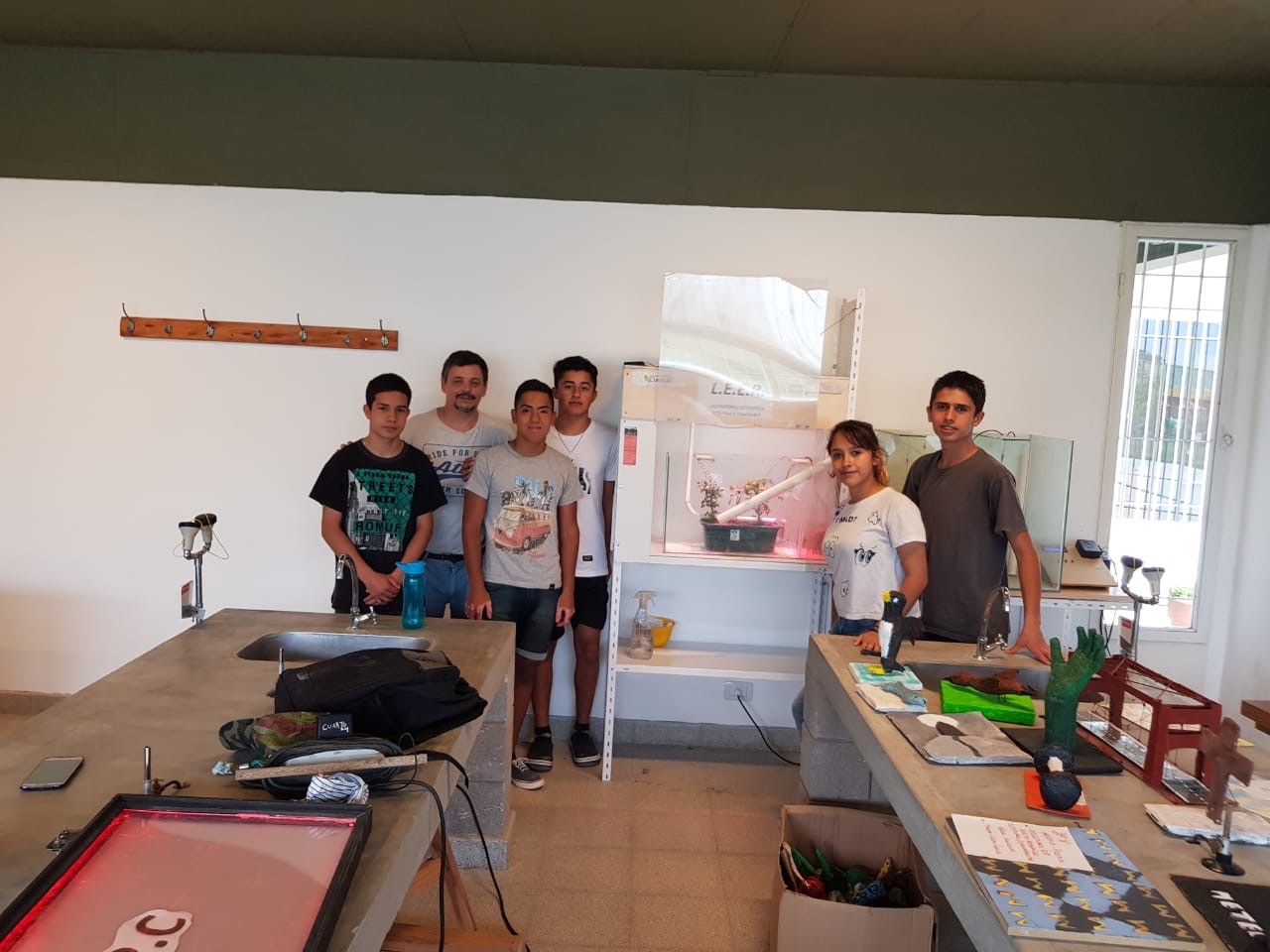 2018 Carmen de Areco, Buenos Ares, Argentina
2018 Carmen de Areco, Buenos Ares, Argentina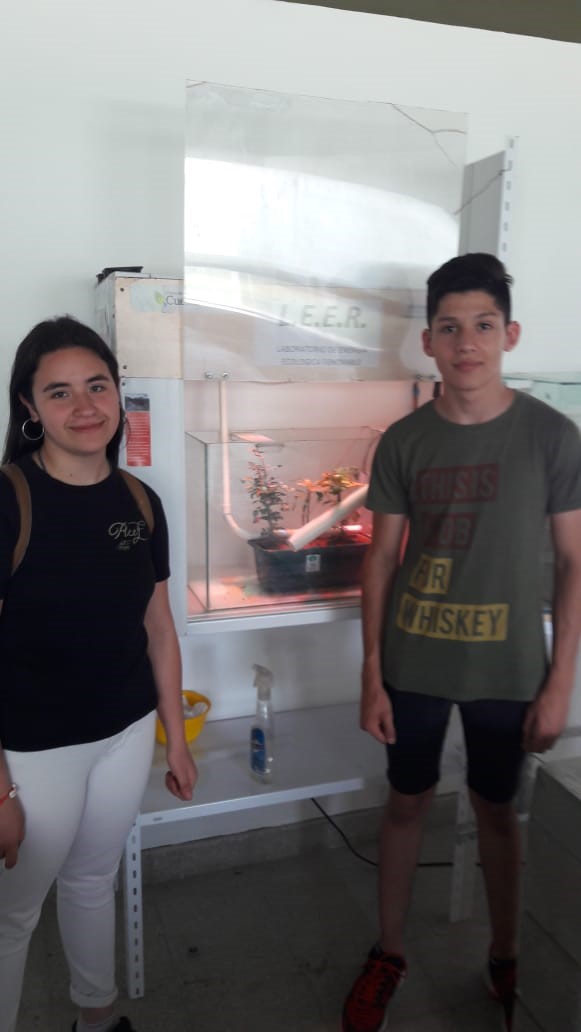 This project combines other CFW projects; they used arduinos system and the idea of the 2017 winning project “smart light” that manages the light intensity and the day / night duration. They are using renewable energy, solar photovoltaic, solar thermal peltier cells and the whole system is robotic and managed by arduinos. They have humidity, co2, and intensity sensors and different types of luminosity.
This project combines other CFW projects; they used arduinos system and the idea of the 2017 winning project “smart light” that manages the light intensity and the day / night duration. They are using renewable energy, solar photovoltaic, solar thermal peltier cells and the whole system is robotic and managed by arduinos. They have humidity, co2, and intensity sensors and different types of luminosity.
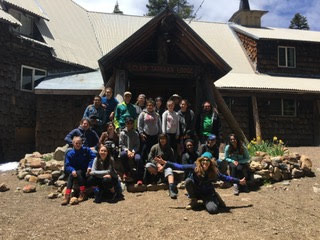
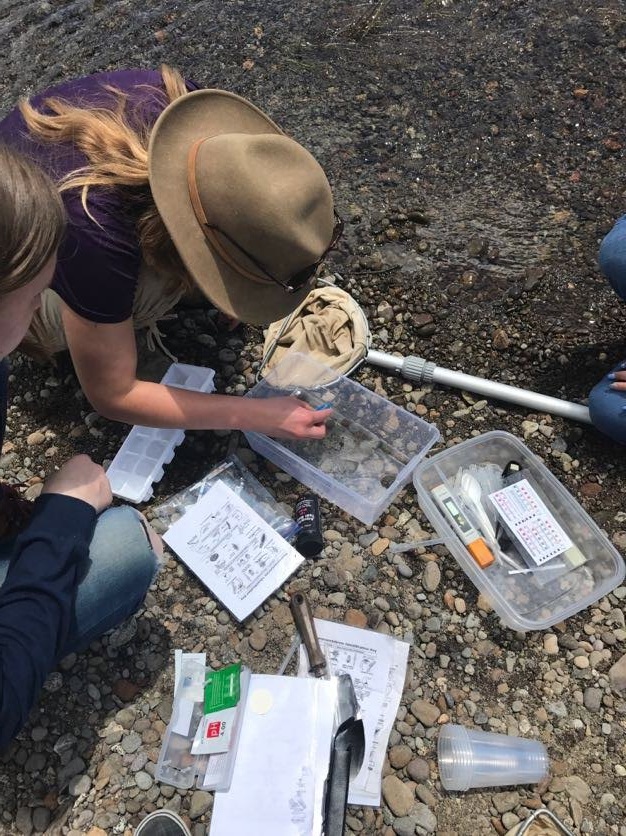
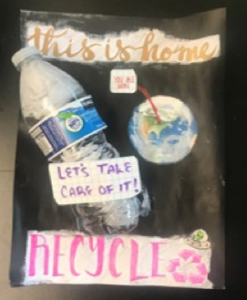
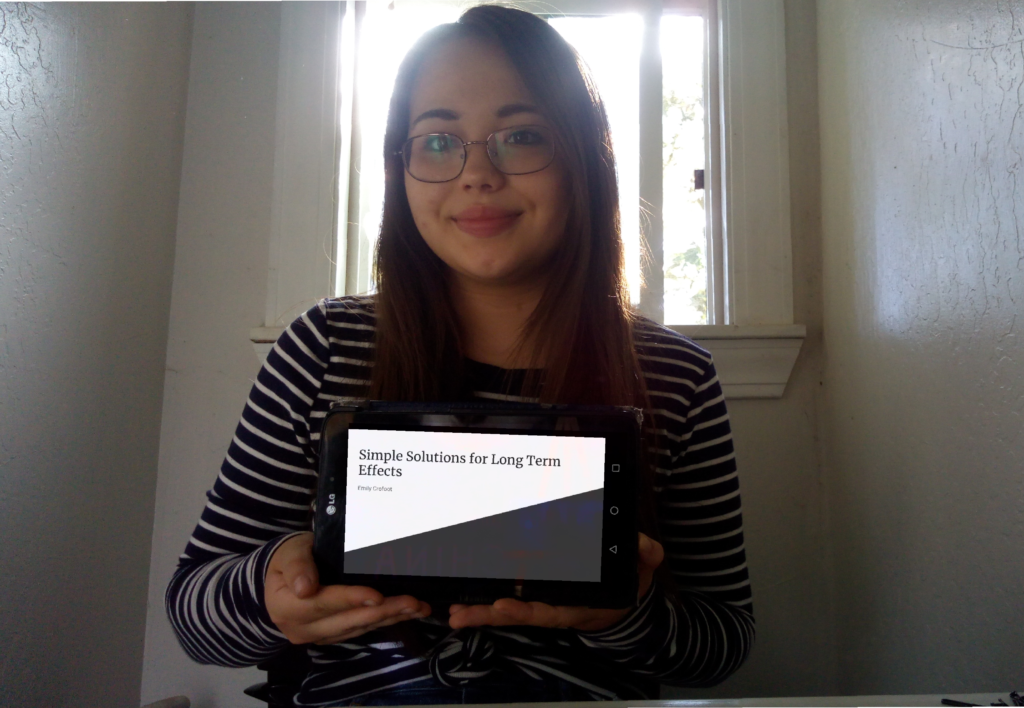
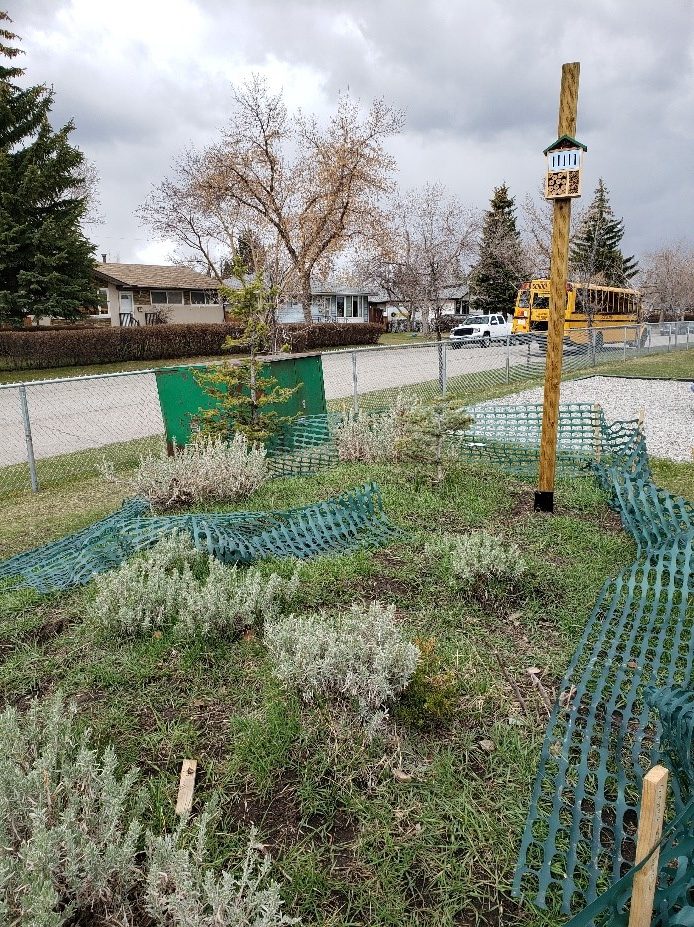
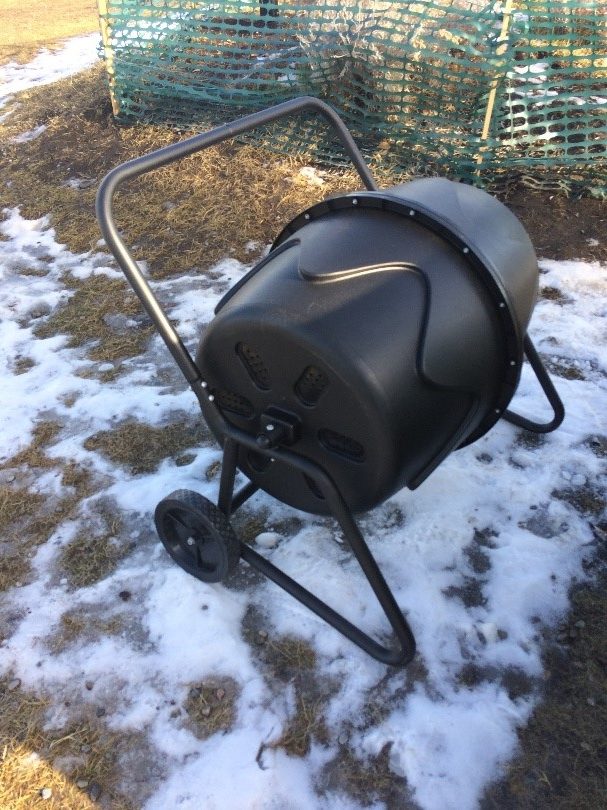 waste, provide nutrients for the soil in their gardens, and educate students and members of his community on the positive role composting plays in the environment and in our watershed. Cole also aimed to improve the mental health of students and teachers in his school by encouraging not only the use of their composter, but also the use of their outdoor classroom and garden space.
waste, provide nutrients for the soil in their gardens, and educate students and members of his community on the positive role composting plays in the environment and in our watershed. Cole also aimed to improve the mental health of students and teachers in his school by encouraging not only the use of their composter, but also the use of their outdoor classroom and garden space.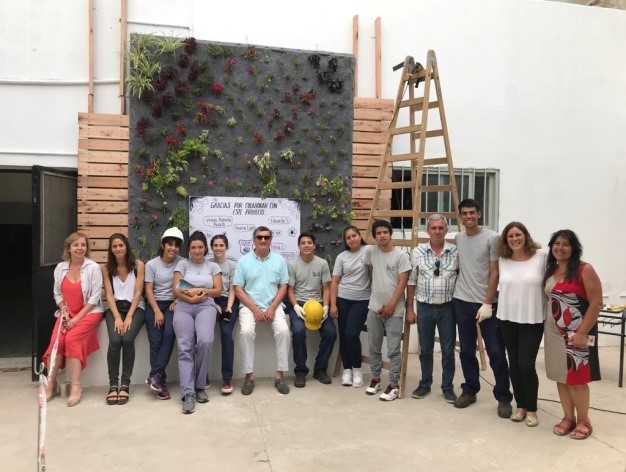 2018 Capitan Sarmiento, Buenos Aires, Argentina
2018 Capitan Sarmiento, Buenos Aires, Argentina